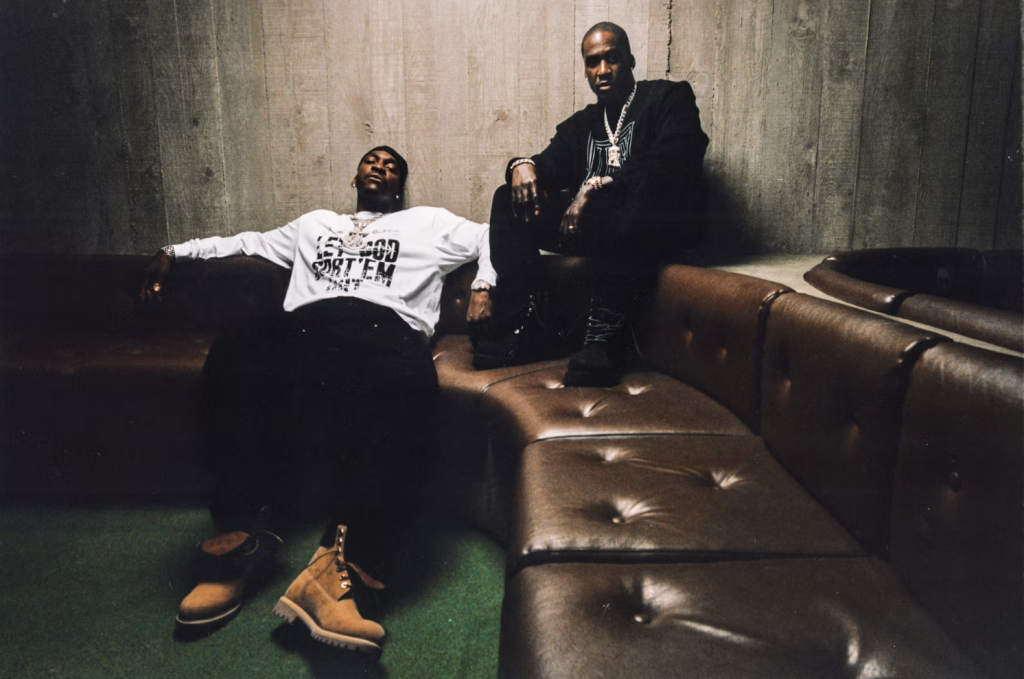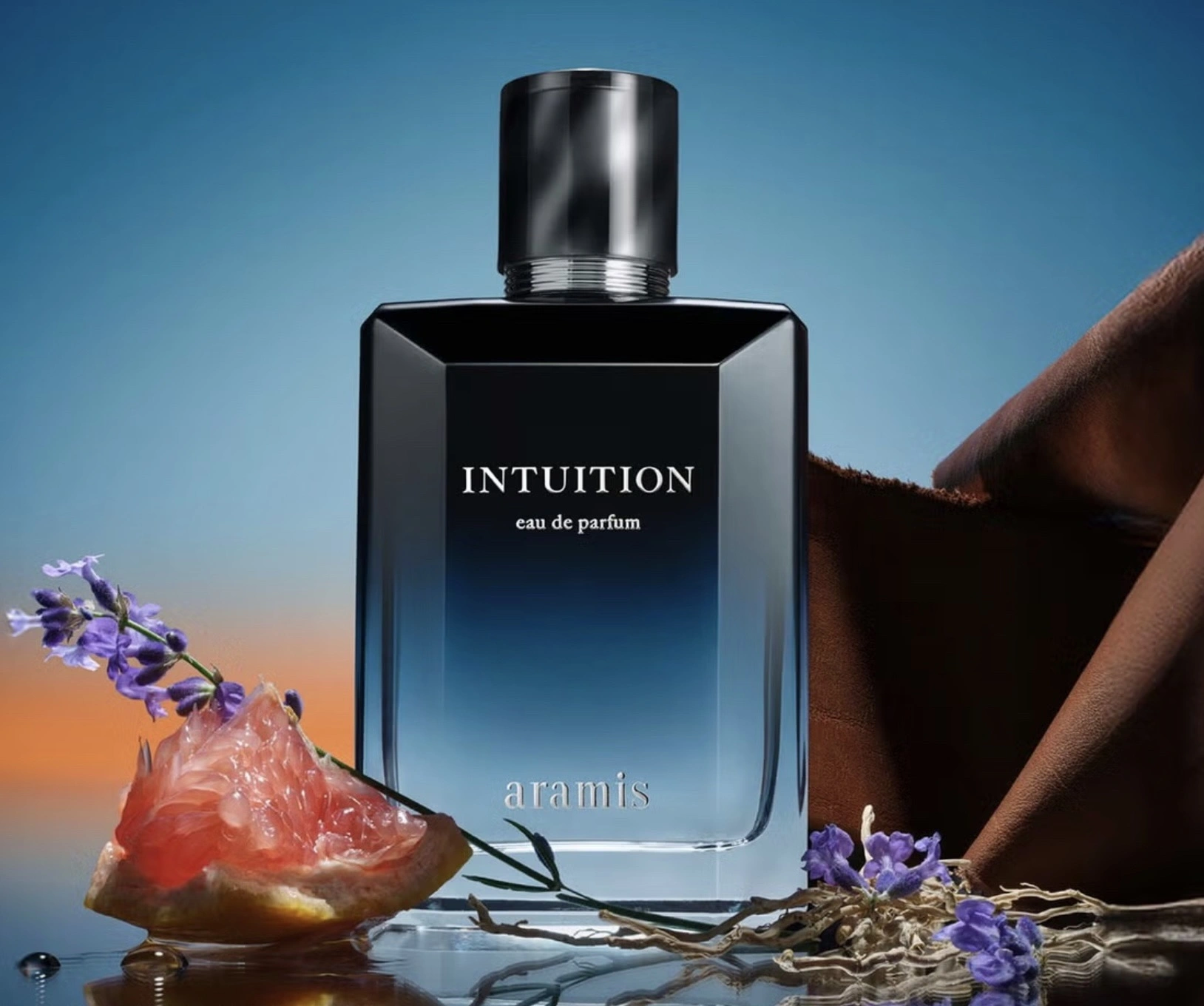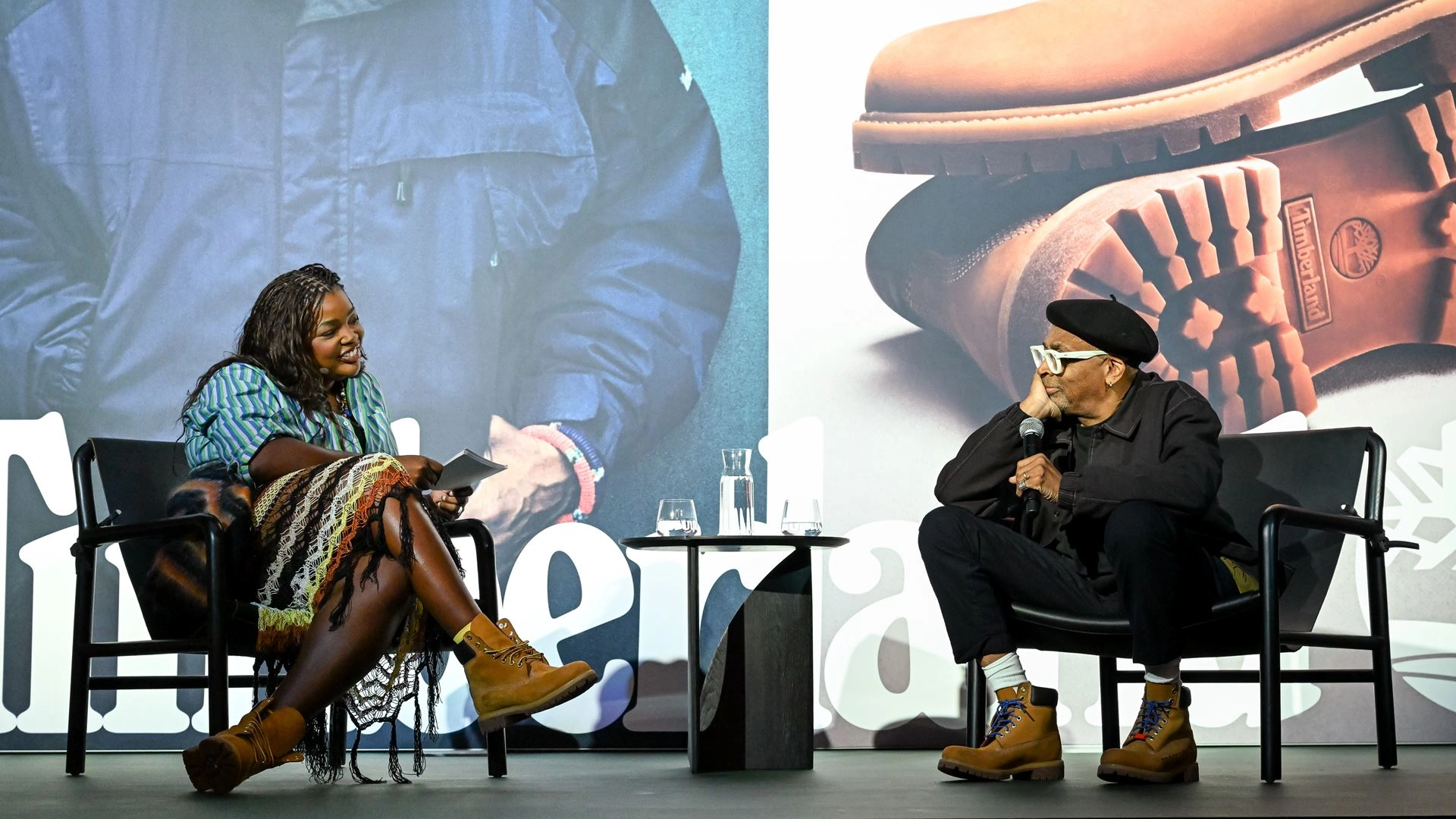In the ever-evolving intersection between music and fashion, few connections feel as instinctive and lived-in as the recent partnership between CLIPSE and Carhartt WIP. The Virginia-based rap duo, known for their visceral lyricism and ice-cold delivery, has joined forces with the workwear-luxury juggernaut to release an exclusive capsule collection — just in time for their global tour and the release of their long-awaited new album, Let God Sort Em Out.
Grounded in heritage and hard edges, this merge is as much about legacy as it is about style. It’s about CLIPSE’s return to the cultural stage and how their aesthetic, both musically and sartorially, has never been more relevant.
A Return Years in the Making
Let’s begin with what makes this flow seismic: the reunion of CLIPSE. Pusha T and No Malice, brothers by blood and united by barbed lyricism, left an indelible mark on hip-hop with albums like Lord Willin’ and Hell Hath No Fury. Their signature blend of coke rap, introspection, and Neptunes-produced minimalism carved out a lane few could touch.
For over a decade, fans clamored for a full-scale comeback. And now, in 2025, that wish has materialized. With the announcement of Let God Sort Em Out and an accompanying world tour, CLIPSE is back — but they didn’t come alone.
Carhartt WIP, the European-born streetwear extension of the classic American workwear brand, is the perfect partner for CLIPSE’s return. Built on the foundation of durability, authenticity, and cultural credibility, the brand mirrors CLIPSE’s commitment to rawness and refinement.
Design Philosophy: Rugged, Refined, and Road-Ready
The collection, while tight and concise, is loaded with intention. It includes two standout pieces: a black denim Detroit Jacket and an OG Active Jacket in heavyweight Dearborn Canvas. Both garments are rooted in Carhartt’s DNA — utilitarian, tough, but subtly elegant. In CLIPSE’s hands, however, they’re more than apparel. They’re statements.
The Detroit Jacket features classic contrast stitching and snap buttons, with a co-branded woven patch on the chest. The rear panel is emblazoned with the Let God Sort Em Out emblem in a cracked graphic font that evokes underground zines, penitentiary murals, and gospel record sleeves all at once.
Meanwhile, the OG Active Jacket is lined in quilted flannel and rendered in the sand-toned “Hamilton Brown” Dearborn Canvas — a staple of Carhartt’s archive. But this isn’t factory-issue workwear. The graphic treatment transforms it into an artifact of CLIPSE mythology. The back reads: “PLAY WRITTEN IN STONE,” a reference to the duo’s enduring legacy and lyrical permanence. Inside the lining, a printed verse from No Malice appears — a spiritual introspection etched directly into the garment.
Each piece manages to feel broken-in and hard-earned, as if it’s already lived on tour buses and recording studios. That is the magic of this collaboration: it doesn’t scream. It broods.
Fashion as Testimony
This capsule isn’t just merchandise. It is testimony. In many ways, it’s autobiographical. CLIPSE has always been about duality — sacred and profane, brotherhood and betrayal, loyalty and conflict. These contradictions appear in the garments themselves. The Detroit Jacket is sleek, monochromatic, and stark, reflecting the cold, calculated world they often rap about. The Active Jacket, by contrast, is warm, tough, and protective — like armor for the soul.
The visual minimalism — no flashy color blocking or ironic logos — aligns with CLIPSE’s lyrical ethos. Their bars don’t need gimmicks. Neither do their clothes. Like a perfectly delivered verse, each seam and stitch is intentional.
The Influence of Virginia Grit
What makes CLIPSE unique, and by extension this collaboration, is how deeply rooted it is in Virginia Beach — not just as a place, but as a mood. Virginia’s aesthetic is complicated. It’s coastal yet industrial, southern yet mid-Atlantic, slick yet grounded. The Carhartt pieces reflect that friction: streetwear silhouettes imbued with workwear function. They aren’t designed for pristine show-rooms. They’re made for warehouse parties, soundchecks, and late-night writing sessions.
Carhartt WIP’s European sensibility further amplifies this. Known for its unions with underground creatives, the brand has long blurred lines between haute and grit, creating pieces that feel just as appropriate in a Berlin club as in a Detroit auto shop. With CLIPSE, that transatlantic cool gets a distinctly American, deeply southern twist.
Beyond Merch: A Multilayered Campaign
The marketing rollout for the capsule speaks volumes. Shot entirely in black-and-white 16mm film across various parts of Paris, Marseilles, and Norfolk, the visuals juxtapose stark urban decay with shots of holy spaces — churches, stained glass, and candle-lit altars. There’s a sense of penance meets performance, echoing the themes of Let God Sort Em Out.
The editorial photographs, captured by Senegalese-French photographer Lamine Keita, show Pusha T and No Malice not as rockstars, but as contemplative figures in motion. In one shot, they sit silently on folding chairs outside a laundromat, Detroit Jackets buttoned to the chin. In another, they walk past a crumbling church facade, as the Carhartt logo glints subtly from their cuffs.
This is clothing as continuation — not of a trend, but of a testimony.
Culture
What makes this drop resonate beyond its materials is how it taps into fashion’s ability to preserve cultural memory. Carhartt, originally founded in 1889 to serve railroad workers, has been embraced by hip-hop communities since the ‘90s — from Biggie’s flannel-lined bombers to J Dilla’s oversized canvas coats. CLIPSE’s involvement pushes this lineage forward, treating workwear not just as a symbol of hustle, but as sacred cloth.
There’s something almost reverent about the collection. It doesn’t just borrow from heritage — it restores it. In an era where many artist-brand partnerships feel like hollow cash grabs, this one feels lived-in, emotionally charged, and spiritually grounded.
Let God Sort Em Out: A Slogan with Weight
The title of CLIPSE’s new album — and the motto emblazoned across the garments — is more than a marketing hook. “Let God Sort Em Out” echoes the medieval Crusader expression: “Kill them all, let God sort them out.” But in CLIPSE’s hands, it becomes something more nuanced — a meditation on judgment, legacy, and redemption.
It’s a fitting metaphor for both their music and their clothing. These jackets, these verses, these lives — they’ve all passed through fire. Let God sort what remains.
Limited Release, Unlimited Storytelling
The capsule will be released in limited quantities through select Carhartt WIP stores, an exclusive Dover Street Market pop-up, and during CLIPSE’s global tour. Each jacket comes with a numbered certificate, signed by both artists, and a QR code linking to behind-the-scenes footage of the design process.
There’s even a special tour edition of the Detroit Jacket, made in washed duck canvas with gold embroidery — only 100 pieces will be made, reserved for crew and VIP ticket holders. It’s a nod to the exclusivity of legacy, a reward for those who’ve ridden with the duo from day one.
What Comes Next?
The question now isn’t just “what’s next for CLIPSE?” but “what does this moment mean for artist-led fashion?” This isn’t about hype anymore. It’s about ownership, authorship, and permanence. CLIPSE isn’t trying to sell you an image. They’re offering you a uniform for the journey — one that acknowledges the scars, honors the grind, and carries your story with weight.
In doing so, they’re adding to a growing movement of musicians who treat fashion not as branding but as a second language. From Kendrick Lamar’s PGLang gear to Tyler, the Creator’s Golf le Fleur tailoring, and now CLIPSE’s Carhartt WIP drop, the future of fashion belongs to storytellers.
The Uniform of Redemption
The CLIPSE x Carhartt WIP capsule collection is more than a merchandise moment. It is a convergence of identities: fashion as armor, music as prayer, and memory as material. It’s the sound of two brothers, battle-hardened and introspective, clothing themselves in symbols of labor and love.
These jackets won’t change the world. But they might change how we wear it. And that, in the language of both style and survival, is everything.
No comments yet.









